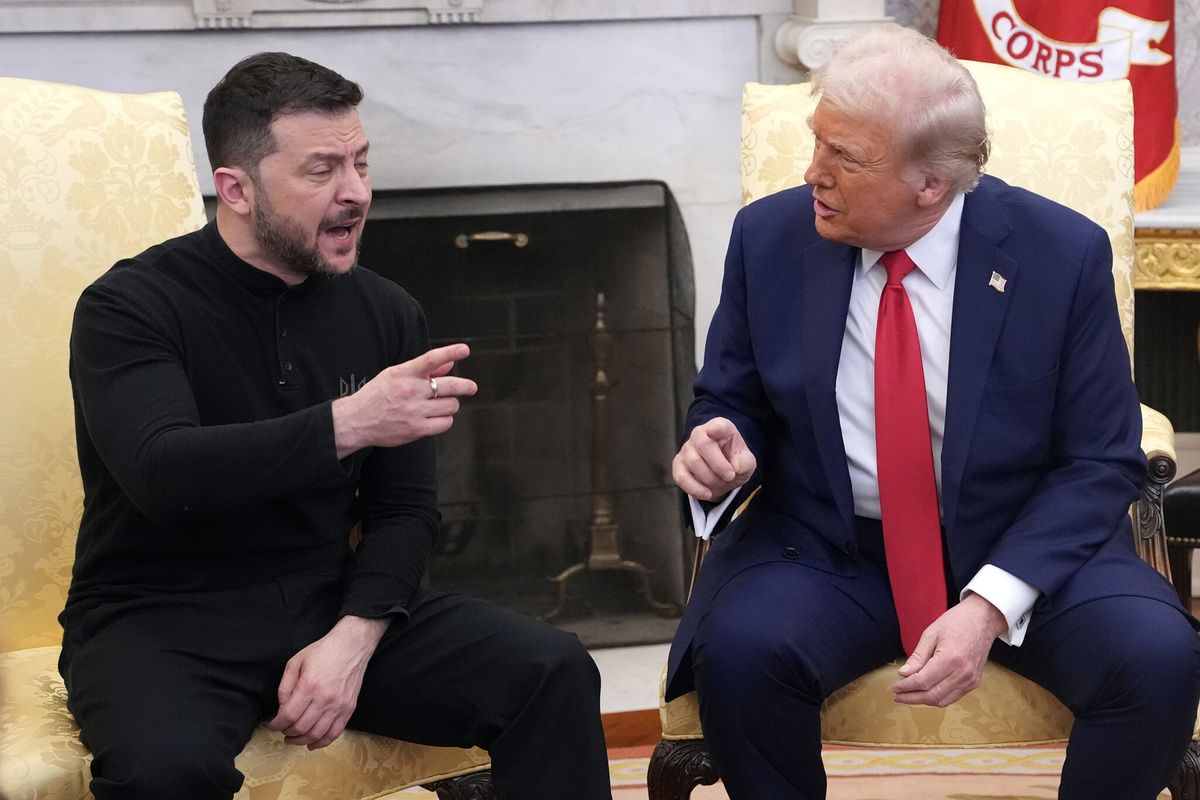Journalists need to find a way to pin down President Trump, and his June 10 press conference in Singapore provided a clear example of one way to do it.
The subject was whether Trump had brought up human rights in his meeting with North Korean Leader Kim Jong-un.
When first asked about human rights, the reporter put it this way: “What do you, President Trump, expect Kim Jong-un to do about the human rights record regarding the North Korean people?”
Trump responded, “Right. It was discussed. It was discussed relatively briefly compared to denuclearization,” and then the President went back to talking about denuclearization.
But another reporter wasn’t giving up and asked the President, “Another huge problem is the horrible record that they have on human rights. Was that discussed at all?”
Trump replied, “Yes.” The reporter followed up again: “Is that something that you will tackle in the future?” Trump responded, “Yes, it was discussed. It will be discussed more in the future — human rights.” Trump then quickly changed the subject to the return of bodies of American servicemen, which he said, “was also discussed in great detail.”
Then human rights came up a third time. This time, the reporter began by pointing out what Trump himself had said back on January 30, in a speech broadcast to a national television audience.
The reporter said, “Returning to the question of human rights. You spoke very powerfully on the issue during the State of the Union address. You showed that you had the defector in the first lady’s box. You said North Korea has more brutally oppressed its people than any other regime on Earth. Do you still believe that is the case, having sat down with Kim Jong-un? Does he need to change that?”
This time, faced with a lengthy reminder of his own words, Trump gave a more complete answer: “John, I believe it is a rough situation over there. No question about it. We did discuss it today strongly. Knowing what the main purpose of what we are doing is here – denuking - discussed at good length. We will be doing something on it. It’s rough. It’s rough in a lot of places, by the way. We will continue that and I think ultimately agree to something. It was discussed at length outside of the nuclear situation. One of the primary topics.”
So Trump went from human rights being discussed “relatively briefly,” to “it was discussed,” to “it was discussed at length outside of the nuclear situation. One of the primary topics.”
Another reporter, still seeking more details, brought it up for a fourth time.
This reporter asked, “You mentioned that you have raised extensively the issue of human rights with Chairman Kim.”
Trump interjected, “Yes,” and the reporter continued: “I wonder what you would say with the people who have no ability to hear or see this press conference? The 100,000 North Koreans kept in a network of gulags? Have you legitimized them?”
Trump responded, “I think I helped them. There is nothing I can say. All I can do is do what I can do. We have to stop the nukes. At a certain point, you will ask me a more positive question or make a statement. Not much I can do right now. At a certain point, I believe he is going to do things about it. I think they are one of the great winners today.”
Notice that Trump seems to be saying there is little he can do about human rights in North Korea and then went on to imply that questioning him about human rights is a negative, not a positive question.
There was finally a fifth question on the subject. Trump was asked, “Would you ever consider removing the sanctions without significant improvements in the human rights situation?”
He replied, “No, I want significant improvement. I want to know that it won't be happening. And, again, once you start that process, there'll be a point at which even though you won't be finished for a while, because it can happen scientifically or mechanically, but you're not going to be able to go back. You know, once we reach that point, I'll start to give that very serious thought.”
The apparent lesson to take away is that persistence and citing prior quotes are the best measures for pinning down the president. It’s noteworthy that it was the tough question, followed by reminding Trump what he had said to a national television audience just months earlier, that pushed him to address the issue more thoroughly.
Understanding Trump’s habit of recalling facts as he would like them to be, rather than what they really are, the real question still remains, ‘What, if anything, did the President say to Kim about North Korean human rights?’ Unfortunately, even with persistent questioning, the world may never know.













